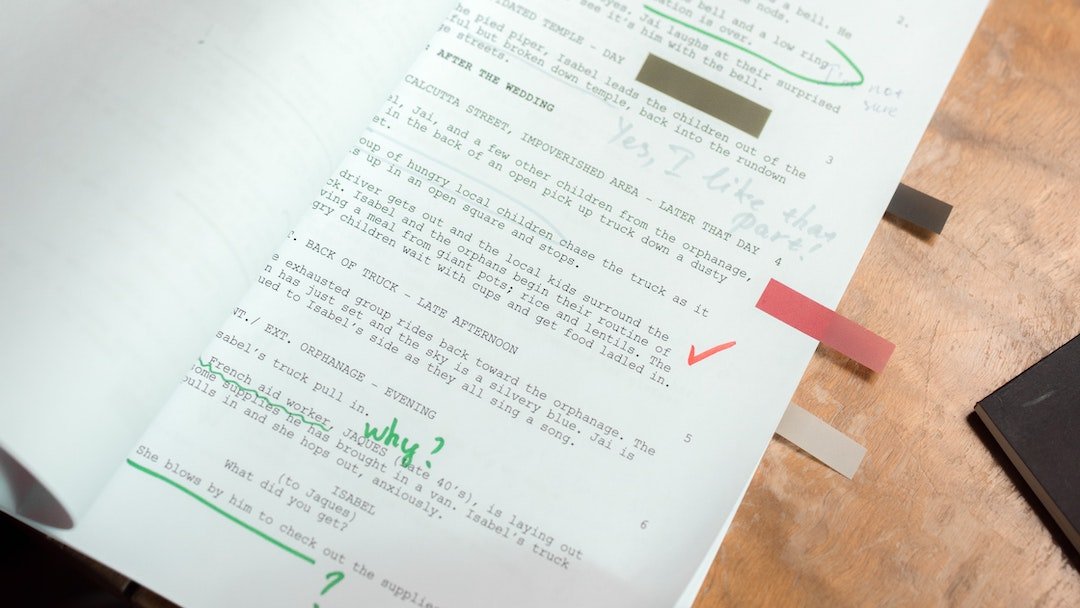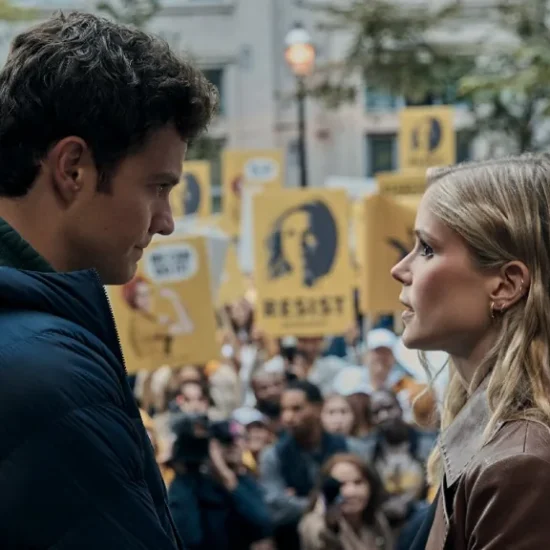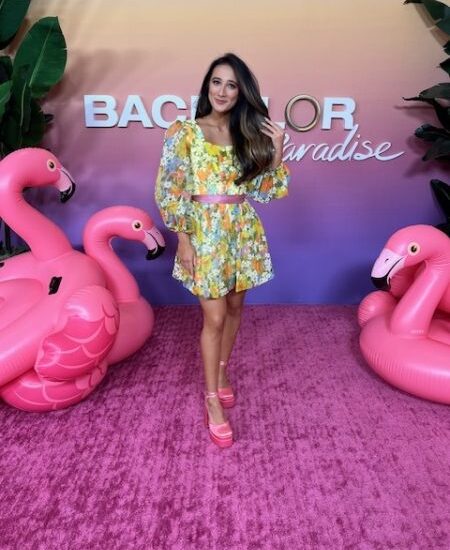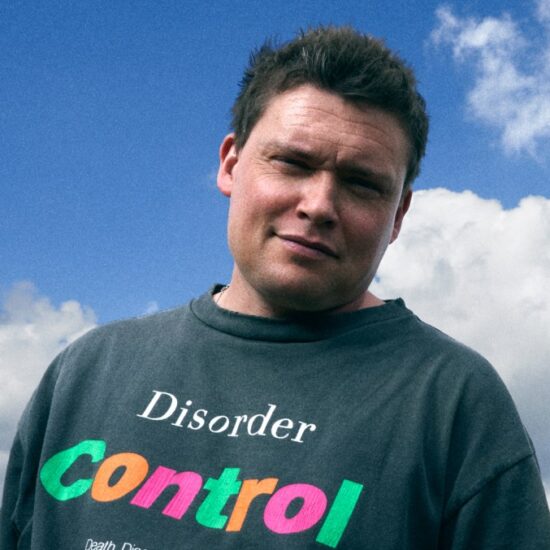
So you want to become a successful screenwriter? But how do you start? What do you need to do to make a living as a screenwriter? Today, you will learn how you can become a screenwriter and what you need to do from a guy who has worked, and has really been successful for decades, at being a professional screenwriter.
I’d like to introduce my friend and Hollywood screenwriter, David Nathan Weiss. David and I have been friends since we went to high school in the seventies together. David is by far, the most famous un-famous person I know. Wikipedia (https://en.wikipedia.org/wiki/David_N._Weiss) tells us that “David Nathan Weiss is the screenwriter of All Dogs Go to Heaven and Rock-a-Doodle and co-writer of The Rugrats Movie, Shrek 2, Clockstoppers, Jimmy Neutron: Boy Genius, Rugrats in Paris: The Movie, The Smurfs, its sequel and Disenchanted with writing partner, J. David Stem. He has also written for television shows such as Mission Hill, Cybill, and Roundhouse. Weiss wrote and directed several award-winning shorts and wrote the screenplay for the MGM classic, All Dogs Go to Heaven. With his writing partner, J. David Stem, Weiss served as a head writer for Rugrats and wrote the holiday special A Rugrats Chanukah.
But as David tells me, “No one knows who the writers are.”
Let’s meet David and have him tell us his story.
MR: David can you introduce yourself to us?
DW: I’m a writer, screenwriter, and a director. I’ve always been a director, but this is my first feature. I’ve done a lot of shorts and stuff. I started in animation after film school — USC’s School of Cinematic Arts. Back then it was just called USC’s School of Cinema & Television. Then I went to work for Don Bluth, the animator, and he got me into animation. He was looking for a writer for All Dogs Go to Heaven, which became my first film.
MR: So you also did Shrek Two. You did Rugrats. All Dogs Go to Heaven?
DW: Yeah. and Jimmy Neutron. Rugrats One and Two. Smurfs One and Two. I worked on Anastasia, uncredited. But I got paid. And got a poster signed by Don and Gary (Goldman) saying, “Couldn’t have done it without you. Next time negotiate a credit!”
MR: So, okay, today I wanted to talk to you about becoming a paid writer. Let’s say I’m a 20 ~ 30 year old guy. I really like writing, and I want to become a writer. This whole process, it just seems so strange to me. What should I do? How do I get started? What is the most basic thing I should do?
DW: Well, the most basic thing is you should be writing. You shouldn’t say, “I want to be a writer.” You should say, “I’m writing right now. I’m writing a book. I’m writing a film. I’m writing a TV pilot. I’m writing a journal. I’m writing poetry.” You should be writing every day. ABW, “Always Be Writing.” You should have a notebook, and you should always be writing in it. You don’t have to be getting paid to be a writer, that’s a whole different thing. I think the way to get to being a professional writer is to start by just being a writer. It should be bursting out of you.
My writing partner, J. David Stem, is always quoting someone who said, you should only be doing this if you can’t do anything else. Not that you’re not able to do anything else. But that you just have to write. You can’t not write. If you don’t feel that inside, that you have to do it, it isn’t going to happen for you — unless you’re just a genius. And I mean a gifted, crazy genius. I don’t know if Mozart just had to do it. I’m not a Mozart. If I’m lucky, I’m a Salieri. (Watch Amadeus if you don’t know that reference).
USC had an interesting application process. They wanted a list of projects that proved creativity. They didn’t want to see the work. But you had to be prepared to show it, to prove that it existed, to show that you were creative. They also really wanted to know that you had something to say. The place was filled with very opinionated people.
So if you’re 20 ~ 30 years old and you want to get into this business as a writer, you should be writing, or doing poetry, or painting, or anything that demonstrates this is what you do. Don’t do it to prove anything. Do it because it’s who you are. I always wanted to put on a show. When I went to get my business degree (to make my dad happy) I was in theater constantly, in plays, producing plays, in the talent show, Spring Sing. Dancing, singing, running the light board, acting, it was just in my blood. So, show the evidence that this is what you need to be doing. If you’re telling me you want to be a writer, but you’re not writing then I think you are not serious.
MR: I’ve actually heard that before. I have a little bit of experience, too. If I write a lot, then everything becomes easier. Things just flow. But if you don’t do it for a while, it’s can be a grind and very difficult.
DW: Your brain atrophies. It’s like a muscle, if you don’t use it, it gets much slower. I’m learning some Japanese words while I’m in Japan, and I excited. Then I went on vacation for two weeks to see my kids in California, and when I got back to Tokyo, I got in a taxi and I forgot how to say ‘left’ and ‘right.’ So you must be always using “the language” and sharpening your skills as a writer.
MR: Okay, so there’s a “writer” and there’s a “paid writer.” When did you realize in your life, how old were you, when you thought, “I’m a professional paid writer?” What were you doing whenever when you realized, “Hey, I made it, I’m a paid writer now, and this is what I’m going to do for the rest of my life!”
DW: First of all, I thought writers just wrote things down. They just wake up and say, “I’m going to write a screenplay now.” And the real first shock to me was you have to know what to write. You have to think of everything! You have to think of the idea, and then you have to work out the structure, you have to work out the story, characters, motivations, and you have to know what everything is about. Oh, my gosh, there’s so much to think about. I start with questions. Who’s story is it? What do they want? What’s in their way? What is at stake? What’s the theme? Then slowly we solve and build it out and find the structure and the characters and the dilemmas and the conflict.”
I was honestly shocked by how much work you have to do before you write anything down in a professional script. Of course, you can sit down and just start writing as part of the exercise. That’s fine, too. And then you back up and go, “Hey, where is this going?” I think jumping back and forth in the process from just going for it and then backing up and looking and see what you have is also great. Then, between creative blasts and bursts and going back and structuring and connecting dots and seeing what you have too much of, things slowly take shape.
Anyway, but back to your question, after the first shock — that writing didn’t just “flow.” I didn’t want to write. I didn’t like writing. Writing felt like homework to me. And I was bad at it.
And when I’m just putting on the show myself and telling everybody what to do, that’s fine. But when you start needing a crew, and they need to know what’s happening, you’ve got to have script. And so they made us write scripts in film school. We started out with short little films we could do by ourselves. Just take a couple of friends out into a jungle in Malibu and start shooting a little Super 8 movie. But when you need a bigger crew for a bigger project, people need to see the pages of script. People need to know, “What locations do we need? What props do we need?” So there has to be a script. So I started writing only to put on bigger shows, and I hated it, and I didn’t feel like I was good at it, but I kept doing it. And then my graduate film got picked up for distribution by a little religious distribution company because it had a lot of spirituality. It was a bit crazy — like a cross between Ghostbusters and Bruce Almighty. (It’s on YouTube). God, monsters, demons.
That movie got me an agent, and the agent said, we can’t sell you as a director unless you have a script, so start writing. So I wrote a script, and that script, as a sample, didn’t get made, but another producer saw that script, liked the writing and hired me to write a script for him. That script also did not get made, but he sent it to Don Bluth, looking for financing. And Don said, “I’m not interested in doing live action movies, but I like the writing. Is the writer available?” And Don hired me to do a rewrite on a film that eventually became All Dogs Go to Heaven. And that was the first time that I went, “So, maybe I can write screenplays get paid.” But then we did another movie that wasn’t so good, so I thought I wasn’t very good. I certainly didn’t think, “Oh, I’ve made it! It was like, “How am I going to get another job?” And so began the seemingly endless desperate chase for the next job.
Happily the next job would come. And then the chase for the next. That was about seven years. And that’s what they say, kind of for Journeymen and Apprentices. Figure around 7 years. You have to just keep trying and struggling. But, if nothing happens in seven years, I suggest you give up and go to your next passion. Go sell insurance or go to medical school or go build a log cabin. Whatever your next plan is, go do that. Because if you’ve got seven straight years and there’s no affirmation, I think that’s the universe sending you a message.
For me, there was always affirmation. I got into USC’s Film School, one of the hardest film schools in the world. And the stuff I did before that, I had that list of creativity stuff. In the church youth group — I was doing this is before I came back to my Jewish roots — I was doing skits and plays and people loved it.
Even in high school, I produced the talent show. And the next year, after I had graduated, they paid me to produce the talent show again. That was my first professional entertainment gig. So I just kept doing entertainment stuff, but I never thought I had “made it.” But eventually, I looked at my IMDb, and went, “I got to stop thinking I don’t have a career, and I’m a complete imposter.” (Laughs).
But that was halfway through my career that I finally realized, “Okay, this is not just a fluke.”
MR: Wow. So let me back up a little bit. You said you went to USC Cinema School, and then you wrote a movie, and then you got picked up by an agent.
DW: The agent saw my graduate film at USC. I got picked up by the agent because of that film. And then he said, “You’ve got to write a script. You need a sample, a feature length sample.” So I did that.
MR: But Don Bluth gave you, your first job? Or did you find that by yourself?
DW: No, the agent got a call from a producer, who was looking for a writer who had done a fairly well known film at the time, but he couldn’t afford her. So the agent said, “Hey, I got this other guy. Why don’t you look at his film and read his sample script?” And he did, and he hired me to rewrite a film he was wanting to produce.
MR: So my point of that question is, is it critical to have an agent in order to become a professional?
DW: The famous chicken and the egg thing. People ask the same about the Writers Guild, too. Do I have to be in the union? Yes. To work on a mainstream Hollywood production, film or TV, you need to be in the Writers Guild. How do you get in the writers guild? You work on a mainstream movie. How do you get an agent? You become in demand — so an agent wants to represent you. Well, how do you get in demand? Your agent puts you up for stuff that make you stand out. Ha! getting the break is one of the hardest things.
An agent is very helpful or can be very helpful, but also, it’s a weird relationship too. Most writers are afraid of their agent. It’s a very co-dependent kind of a thing. Anyway, you’ve got to get noticed somehow. That’s the trick. It helps if you have what they call kutzpah, in Yiddish, right? You’ve got to be willing to go out there and take some chances and annoy some people and say, “Would you read my script?”
There was a young girl recently, on a tour at the studio here. She asked, “Is there any way I could stay in touch with you? Would you give me your email so you could help me figure out how to get my career going?” So I told her, “Listen, I just can’t do it. Time wise, I can’t.” She was really embarrassed, and I could see the other students going like, “Oh, that was crazy of her.” And I said, “Whoa! What you just did proves that you have a chance of making it, because you risked embarrassment to take a chance. I’m sorry that I had to say no, but I’m so proud of you. And your fellow students need to watch you and learn, because this is what it takes.”
And that’s just the truth. You’ve got to find a way in. Go be an assistant somewhere. Go be an assistant to a producer. Go do an internship. You’ve got to get a foot in the door somehow. You’ve got to get noticed. Submit your script to a zillion little film competitions (but research, many are scams to just get money from you to be read — not Raindance! of course. Raindance, I’m sure, is just pure amazing, wonderful opportunity.)
MR: I did that David. Do you know who Rodney Bingenheimier is? He was and still is the most famous DJ in America. I wanted to stay in Hollywood and I decided to ask him if I could be his assistant. I figured he’d never say “Yes!” in a million years! But asking doesn’t cost anything, so I asked him. He did say, “Yes!” and now I have been a DJ for 40 years!
DW: Once you have a reasonable script — and by the way, do not send your first script out to anybody. Send it first to friends who have written scripts. Take a class, get yourself a mentor or professor. Get online, get in a group of people who want to do what you’re doing. Be in community. If you’re in a silo and all you’re hearing is your own voice, chances are, unless you’re just that one in a million (which sometimes people are, but it’s pretty rare) you need feedback. I’ve sent stuff to my agent before I had friends read it, and I was really embarrassed when I realized how tunnel-vision I had been. Agents don’t want to read your script. They really don’t. They’ve got too many scripts to read, and they already have you represented, so they don’t care. And they’re not going to be able to sell your scripts. They’re annoyed when you give them a script to read (unless you’re just a super red hot writer). So please make sure it doesn’t suck before you ask anyone serious to read you.
By the way, that’s another reason I thought that I was an imposter — I’m a collaborator. I have yet to write that great original screenplay. I worked with Alan Ball on Cybill (the TV show) He wrote American Beauty while we were on that show. He let me read it before it went out. Alan Ball is just a visionary. The stuff he does, he just has a muse in his head, and he’s just a genius. I’m not that guy. I’m a guy who is inspired by the energy of people around me. I find my thoughts in discussion and conversation. Sure I write well. But I come alive pitching to other humans and responding to the looks on their faces. And all the more and better if we get into a dialogue and brain storming session. Telling bedtime stories to me kids was always exhausting, because I just come more alive when someone is listening.
MR: I wanted to ask you about that. I was watching some videos, and people were talking about, as a writer, you need to find your own voice. But also most of the projects you work on are not your own voice, they’re other people’s voices. So how do you balance that? Can you explain that to us?
DW: I often say that I’m not an artist. I’m a craftsman. There’s some artistry in me. But I’m an old fashioned showman. I want to put on a show. When I was a kid, I would cut out the jokes from Highlights magazine and we would act them out. I wasn’t “a visionary.” I was a Jack of all Trades who slowly got to know what the audience feels. If I put this combination of actors and noise and music and timing together, the audience would go, “Oh! That’s entertaining!” I’m a showboat. I just love putting on a show. I just always have.
So the studio says, well, we’ve got these Rugrats on TV. How do we turn them into a movie? And I’ll go, “I know what to do,” or “I’ll figure out what to do.” I go figure out what to do. But I can look at these characters and ask the right questions and go, how do we make these little characters go up on the big screen in a way that doesn’t break their concept, that doesn’t break the conventions that made them great for the TV audience?
The Rugrats can’t just suddenly go to the moon just because it’s a big screen, because the Rugrats don’t go to the moon. But they also can’t sit in the living room and wonder how the vacuum cleaner works. That’s not a cinematic question. So I start with questions and solving problems and also getting into the head of the producer. And it turns out that’s a skill. And when it’s all said and done and you write a movie that everybody, thank God, most everybody loved — that’s also writing.
I didn’t think up the Rugrats. God bless Arlene Klasky and Paul Germain and Gabor Chupo and the gang of writers that created that show. But I can take that show and transfer it to the big screen. I helped do it with The Smurfs and Shrek 2. After the first film, then you have a new question. How do you follow up on the story? How do you do a sequel? How do you do a new story with them that doesn’t just repeat the first story? Where do you find an adventure that lets the audience go, “Yeah, I want to go on the journey with these characters to this new place that isn’t too new, but isn’t repeating the same material?”
This turns out to be a skill that people need. And you can’t say that that script is a bad script. Perhaps not artistry? in fairness, four writers, at least eight brilliant storyboard artists coming up with gags. It’s collaboration. And I’m a good collaborator. And now on the new movie I’m working on, I’m the “Andrew Adamson” (director, Shrek One & Two.) I learned a lot watching him. He’s a conductor. That guy knew how to encourage his team to come up with the best material and knew how to cobble it together and make a good idea great. And also come up with great ideas of his own. I don’t know if he knew he was mentoring me, but I was watching that guy like a hawk. And I’ve had the privilege to work with a number of really solid directors who work that way. I’ve been very lucky that way.
Back to your question what does the poor 20 ~ 30 year old do? Take some encouragement from what I’m saying. It’s okay to think you’re a failure for a little while. That you might be an imposter. But learn from everybody. Make mistakes, Make coffee for mentors. Make copies. Send emails for your boss. Intern. I was an intern. I was an assistant. I scooped up dirty diapers on the set of a PBS TV anthology series, for a little known director at the time by the name of Jonathan Demme, may he rest in peace.
Jonathan Demi was a visionary. And I was his diaper scooper. I don’t know why there were so many dirty diapers on that set. I guess one of the actors or crew members had their babies on the set? They left piles and piles of trash. And my job was to scoop up all the trash and put it in a van and get it off the set. But I was near Jonathan Demme and I got to see him work on the set and work with the actors. And I got to scoop up diapers.
MR: I want to ask you a question then. So are most writing jobs professional writing jobs? Are most of them in a team? Or do you have writing where you just do it by yourself if you’re that kind of person.
DW: I have the greatest of admiration for writers who sit down and can write brilliant stuff on their own. Scott Frank apparently just sits down and writes brilliant movies, and Steve Zallion (SP?) is just a powerhouse. These are guys that, to me, are modern day Hemingways. And I’m not seemingly likely to be in that league. But I’m a solid storyteller, and I’m a good collaborator. And I’m having a lovely career and a great time. I’m enjoying the hell out of what I do, and I love being part of a team. I’ve had a writing partner most of my career, and when I don’t have a writing partner, I collaborate with whoever’s around me, the producer. The crew. I pull people into a room. I say, “Hey, what do you think about this?”
I act stuff out in front of people. I see what they laugh at. I play it for them. If they don’t laugh, I change it. I am glad I’ve never been to put in a quiet room in a cabin by myself for three months, I would go out of my mind. I don’t think I’d write anything all that good. So there’s a lesson for the 20 ~ 30 year old, too. Be who you are. Play to your strengths.
MR: Okay, so I have a couple more questions I want to cover. First off, what are the two most important questions when you are a writer and you go into a room, you’re doing an interview?
DW: Well, the way I usually get a job, somebody has a project or the rights to something and they need a way in. They’ve got a script that’s been kicking around for a number of years. They bought the rights to a commercial or a magazine article or a funny YouTube clip and they want to figure out how to capitalize on it. So what they’re going to ask you is, “What’s your take? How would you turn this into something we could make money out of?” They don’t say the money part, but that’s what they want to know. They want you to solve their problem. They want you to get their movie greenlit. They want to make their boss go, “You’re not wasting our time.” How can you make them look good? They’re going to make you pitch their boss, and this pitch better blow the boss’s socks off.
MR: So, just telling them, “I will make a cool movie and then you have a lot of people come see it!” That’s no good?
DW: You’d be surprised how many people pitch that.
Our allotted time for the interview ended there. I still had so many more questions, so maybe I’ll make a part two. To sum up what David said, “If you want to be a writer, then start writing everyday.” That will make you a writer. To be a “paid professional writer,” get into the film business somehow, be an intern, sweep up the set, join a writer’s group of like-minded people – do whatever it takes to get in and meet people in the industry. Also, and this is critical, if you want to get your foot in the door, then you gotta ask and not be afraid of rejection.
Because in the film industry there hasn’t been a single person in history who wasn’t rejected many times. Being rejected is all a part of the process.
Thanks to David Nathan Weiss for his time and his fascinating story.

Mike Rogers [aka Mike (in Tokyo) Rogers] is a director, producer, and a radio host.
He was also known as “Nigel Nitro”, former lead singer of the Los Angeles punk band, The Rotters (who had the monster hit, “Sit on My Face, Stevie Nix” in the late 1970s.
Currently, he hosts the Mike Rogers Show on InterFM in Tokyo and on Radio Neo in Nagoya, Japan.
He is also the writer, producer and co-director of the 2017 feature film, “Ghostroads – A Japanese Rock n Roll Ghost Story” which premiered at the Raindance Film Festival 2017.
He is a founding member of the JIFF – Japan Indies Film Festival and JIMA – Japan Indes Music Awards.















